We See You Where It Suits You
Physio Inq is your premium partner for all your Physiotherapy & Allied Healthcare requirements for in home, in clinic and online services throughout Australia.
Physio Inq exists to provide reliable, experienced, and forward-thinking care to the community – we are passionate about Australian’s living a life with less limits.
We provide in home, online and clinic solutions for your Physiotherapy, Occupational Therapy, Speech Pathology & Exercise Physiology needs across Australia.
Our therapists are experts in their respective fields, and we believe every client deserves an incredible experience. We see people of all ages, with a large team that treat people across the lifespan, from paediatrics to geriatrics
Who can we help & assist?
- Private Clients
- NDIS Participants
- Home Care Packages
- Transport Accident Commissions (TAC)
- WorkCover
- Department of Veterans’ Affairs (Only in clinic)
At Physio Inq we aim to create happiness and fulfilment for all we come in contact with – this includes our staff and those we serve.
Health for You – In Home, In Clinic & Online
Across the country our local Allied Health services include:
- Mobile Physiotherapy
- NDIS Physiotherapy
- Aged Care Physiotherapy
- Stroke Rehabilitation Physiotherapy
- Traumatic Brain Injury Physiotherapy
- Womens Health Physiotherapy
- Neuro Physiotherapy
- Occupational Therapy
- Paediatric Occupational Therapy
- Aged Care Occupational Therapy
- NDIS Occupational Therapy
- Occupational Therapy Telehealth
- Speech Pathology
- Children's Speech Pathology
- Adult Speech Pathology
- NDIS Speech Pathology
- Speech Pathology Telehealth
- Mobile Exercise Physiology
- Aged Care Exercise Physiology
- NDIS Exercise Physiology
- Exercise Physiology Telehealth
- Aged Care Speech Pathology
Frequently Asked Questions
How does Occupational Therapy work?
Occupational Therapy practice involves working with a client to understand what occupations (activities) are important to the person, what difficulties, barriers or challenges they be experiencing in performing these activities, and what goals the person has in relation to their occupations
What does an Occupational Therapy session consist of ?
Appointments may vary depending on your individual goals and may include:
- Assessment and trialling of different equipment to meet your needs (for example wheelchairs, beds, lifters)
- Measurement and assessment for environmental modifications (for example ramps, rails, different taps)
- Implementation of a tailored therapeutic program for upper limb rehabilitation (for example post injury or after a stroke)
- Trial and implementation of adaptive equipment to assist in daily activities (for example adaptive kitchen aides like a kettle tipper or modified chopping board)
- Development and implementation of a skill building program (for example to build skills to become independent in areas of your life – meal preparation, time management, grocery shopping, community access)
What do I need to bring along to my first appointment
It is helpful if you have any information or reports from your General Practitioner (GP) that may be appropriate and may assist us in understanding what your needs are. If you are an NDIS participant, a copy of your NDIS Plan Goals is also helpful to guide our assessment and identify what areas you may require our assistance.
What should I wear for my first consultation?
We encourage you to be comfortable at your appointments - so clothing that you are comfortable in is best.
How much does it cost?
Our prices vary dependent upon services required and your geographic location. A copy of our price guide can be found here. Our customer service team will provide you with your pricing based on your individual circumstances in your initial contact with them.
How do I pay for my treatment?
If you are NDIA managed, Plan managed, Self managed or Private. we are able to easily accommodate payment for our services. For Self managed we offer a Direct Debit mechanism that reduces administration for both you and our therapist, leaving you more time to receive our great services. The direct debit will take place 5-7 days after your appointment to allow you ample time to claim from NDIA beforehand. EFT/Square payment (more detail below) are also available upon request. For Private clients our therapists take credit or debit card payments on the spot via their Square payment device. you will be issued with an invoice upon completion of your appointment to help facilitate any claim from NDIA or your Health Fund.
How long are the consultations?
Consultation length varies dependent on your individual needs. Our initial consultations may take up to 2 hours, and follow up sessions may vary but most commonly are an hour in duration.
Do I need a referral?
Our services are available with a referral.
Certain funding types require appropriate referral, these will be discussed with you at the time of booking your appointment with our customer service team.
I am a Support Coordinator, where can I refer Physio Inq my clients?
At Physio Inq, we are happy to accept referrals in your preferred method, these include:
Phone: 1300 731 733
Email: [email protected]
Online: https://www.physioinq.com.au/allied-health-referral-form
What states in Australia do you cover?
We are currently covering New South Wales, Victoria, South Australia, Queensland, Tasmania & Western Australia.
Are you NDIS registered?
We are indeed one of the first NDIS Allied Health providers in Australia, being involved with the first rollout in NSW. We know NDIS very well and our therapists are highly trained in the scheme.
What is ndis occupational therapy?
NDIS Occupational Therapy" is Occupational therapy provided to participants within the National Disability Insurance Scheme (NDIS). Physio Inq are one of the biggest NDIS Occupational Therapy Providers in Australia.
Do I need occupational therapy report for NDIS application?
Do you see clients under My Aged Care?
Yes, we do see clients under My Aged Care, through their HCP provider.
Is occupational therapy covered by medicare?
Yes - The Australian Government currently provides funding for a wide range of services and programs to assist in the treatment of Occupational Therapy disorders. Via Medicare specifically, children may qualify for an Enhanced Primary Care Plan (EPC), which may also be known as a Chronic Disease Management Plan (CDMP) to assist in funding Occupational Therapy services.
Does bupa cover occupational therapy?
BUPA is a private health insurer in Australia. As part of their products, they offer 'extras' cover. Some of the most common services and treatments that people make for include, dental, optical, physiotherapy and occupational therapy services. To ensure you have cover
What can an "OT" help me with?
- Bathroom equipment such as shower chairs, bath boards
- Bidets
- Manual transit wheelchairs
- Custom configured manual wheelchairs
- Powered wheelchairs
- Mobility scooters
- Customised seating
- Alternative seating needs such as an electronic lift chair, mobile reclining chairs etc
- Paediatric equipment
- Complex equipment
- Adjustable Beds
- Pressure care equipment including cushions and mattresses
- Manual handling equipment including lifters and other devices
- Postural positioning equipment
- Sleep systems
- Assessment of and recommendations for home/environmental modifications
- Sensory assessment and intervention
- Assessment to support application for NDIS Funding
- Assessment to support application for Specialist Disability Accommodation and Supported Independent Living
- Assessment and treatment of Upper Limb conditions
- Assessment and intervention for fine motor and dexterity development
What conditions can you Occupational Therapists treat?
Our OT team are able to assist with a wide variety of clinical conditions, including but not limited to;
- Post hospital needs
- Post surgical needs
- Intellectual disability
- Physical disability
- Psychosocial disability.
We have an experienced team of Occupational Therapists that are able to assist with most conditions.
What is occupational therapy for adults?
Occupational therapy for adults enables people to participate in the activities they find meaningful. These activities include taking care of oneself (and others), working, volunteering, and participating in hobbies, interests and social events.
What is occupational therapy for children?
Occupational therapists help children do everyday things like eating, dressing, going to school and going out in the community. An occupational therapist might help if your child has physical or psychological challenges, developmental delay or intellectual disability.
What is paediatric occupational therapy?
Paediatric Occupational therapy is working with children and people younger than eighteen to help them achieve their daily occupations that may include self-care, school and play. By concentrating on these key areas, paediatric occupational therapy helps children in developing confidence, self-esteem, social skills and their general wellbeing.
What is adaptive equipment for occupational therapy?
Adaptive equipment is any device, tool, or machine that is used to assist with any daily task. Adaptive equipment in occupational therapy helps those with short-term or long-term disabilities where they may be having trouble performing their normal routines.
What is early intervention occupational therapy?
Early Intervention is the term used to describe the services and supports that are available to babies and young children with developmental delays and disabilities and their families. Occupational Therapy has been shown to be very effective as part of an early intervention program.
What is an occupational therapy driving assessment?
An Occupational therapy driving assessment evaluates the ability of a person with physical, behavioural, or cognitive impairments to drive safely, consistently and independently. It also make recommendations about driver rehabilitation, vehicle modifications and licence conditions required for safe driving.
Can occupational therapy help with potty training?
Yes - Occupational Therapists can assist with toilet training. Occupational Therapists can assist with strategies to ensure comfortable seating on the toilet, assistance with removing clothes for toileting, and completing the task including bottom wiping.
Does occupational therapy help with handwriting?
Yes - Occupational therapists can assist with handwriting difficulties. Handwriting is a often difficult process of managing written language through coordination of the eyes, arms, hands, pencil grip, letter formation, and posture. A child's handwriting can show indication of developmental problems that could impair a child's learning because teachers depend on written work to measure how well a child is learning. Occupational therapists can review and assess the components of handwriting, such as strength, coordination, and fine motor control, and parents can encourage activities at home to support good handwriting skills.
For occupational therapy, or any allied health service, it is recommended you engage with your insurer directly.
How occupational therapy helps stroke patients?
Occupational Therapy can enable people to relearn lost abilities, regain independence and reduce the risk of further strokes. Occupational Therapy is key to recovery of function and mobility after stroke which helps with return to previous levels of function and reintegration into the community after stroke including completion of activities of daily living such as self care, hygiene and meal preparation. Specific and tailored exercise programs are used to achieve client goals.
What is the difference between Occupational Therapy and Physiotherapy?
The main difference between Occupational Therapy and Physiotherapy is that a Physiotherapist looks at how your BODY functions, within your environment, and treatment is based around getting your body to function better. An OT looks at how you, as a PERSON, functions within your environment as a whole
My relative cannot speak English, I would like to attend the treatment session with them in order to translate, is this ok?
Under the NDIS scheme we have access to interpreters who can be arranged free of charge to come to the initial assessment to assist with the appointment.
Simply let us know if you need this and we will arrange this for you.
Otherwise, we are able to organise sessions when family members might be present to assist with communication, or match the client with a therapist who speaks the same language if that is available.
Community Partners

PR Hub
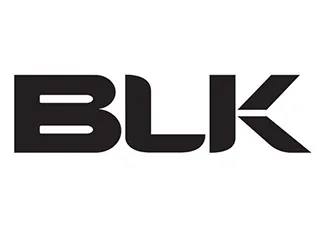
BLK

Franchising Expo

Inside Franchise Business
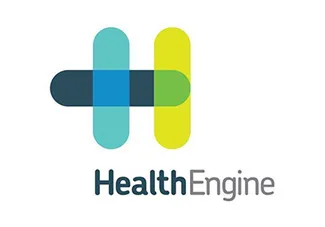
Health Engine
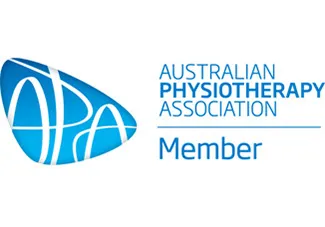
Australian Physiotherapy Association

Australian Goverment Department of Veterans Affairs

HCF
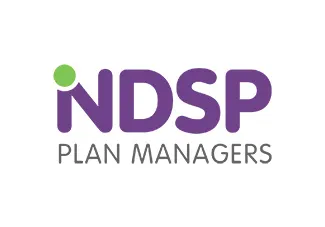
NDSP
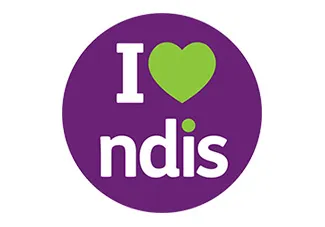
NDIS
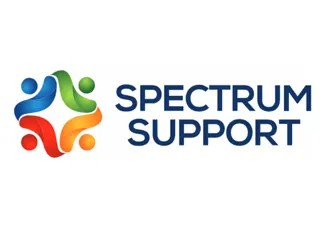
Spectrum Support
Empowering Independence Through Occupational Therapy in Toowoomba
Need a mobile occupational therapist in Toowoomba to help you or a loved one gain more independence? You’re not alone. Whether it’s managing disabilities, easing chronic pain or making a home safer to move around in, small changes can make a big difference.
At Physio Inq, we bring personalised, online and in-home family care therapy services to Toowoomba, helping families live with less limits and more confidence. Our occupational therapists work with people of all ages and abilities, including individuals with disabilities, to create practical solutions according to their needs.
Occupational therapists help individuals strengthen daily living skills.
Occupational therapists play a crucial role in helping individuals strengthen essential daily living skills.
For many people living with a disability, everyday tasks like cooking or dressing can become more challenging. Occupational therapists help by breaking these activities down into manageable steps and providing practical strategies to make them easier.
Therapists may work closely with clients to prioritise their most significant challenges, ensuring focused progress in areas like grooming or meal prep. By targeting their approach to personal needs, the goal is to empower individuals to improve independence in daily life activities when possible.
Whether you’re working with an occupational therapist Brisbane residents trust or one in Toowoomba, they can support you in enhancing overall mobility and daily living skills when achievable.
Occupational therapy supports mobility and accessibility at home and in the community.
Occupational therapy focuses on making everyday spaces easier to navigate. Getting around safely, whether at home, work or in public, can be a challenge, especially for people with disabilities related to mobility limitations.
Occupational therapists might recommend grab rails in the bathroom, a ramp at the front door, a shower chair or even the simple rearranging of furniture to reduce the risk of falls. For individuals using a wheelchair, an occupational therapist can assess their home and recommend layout changes to enhance accessibility.
An occupational therapist could also work with other allied health professionals, such as a North Lakes physio, to offer a multidisciplinary approach if needed.
Occupational therapy can help with chronic pain management.
Chronic pain and other disabilities can make everyday activities difficult, but occupational therapy offers practical ways to manage them. An occupational therapist Toowoomba-wide might identify movements or habits that trigger pain and suggest alternatives, like adjusting how someone lifts objects to reduce strain on their back.
They also teach pain management techniques, such as pacing activities to avoid flare-ups, using ergonomic tools or relaxation exercises to ease muscle tension.
Occupational therapy provides personalised support for different age groups and needs.
Occupational therapy is designed to help people at all stages of life maintain independence and improve their daily lives if achievable. Our extensive network means you can access an occupational therapist Gold Coast-wide, Toowoomba-wide or elsewhere in Australia for online and in-home services tailored to your specific needs.
For children with developmental delays or disabilities, occupational therapy for kids helps improve fine motor skills, coordination and sensory processing when possible. This could help make activities like handwriting, using utensils and dressing easier, allowing them to participate more fully in school and home life.
Older adults often face challenges with mobility and daily tasks, but senior mobility support can provide strategies to help them stay independent. An occupational therapist for seniors can suggest home modifications, fall prevention techniques and mobility aids to create a safer and more accessible living environment, supporting long-term independence in some cases.
For working adults, occupational therapy can be instrumental for recovering from injuries or managing workplace strain. If repetitive tasks cause pain or mobility issues, an online or home visit occupational therapist can recommend ergonomic adjustments, exercises or modified techniques to prevent further injury and make work more comfortable.
No matter if you need an occupational therapist Ipswich-wide or one trusted by Toowoomba residents, your therapy sessions will be tailored to your unique goals.
Access an occupational therapist Toowoomba-wide through Physio Inq.
At Physio Inq, we make occupational therapy more convenient by offering online and in-home services. Our therapists come to you or meet you online, so you don’t have to travel. This way, you can accomplish your therapy sessions in a familiar environment.
We create personalised therapy plans based on each person’s needs, whether that’s managing disabilities for children, supporting seniors in maintaining their independence or reducing chronic pain in adults. Our goal is to provide practical, achievable solutions that make daily life easier.
When you connect with an occupational therapist Toowoomba-wide through Physio Inq, you or your loved ones can enjoy a life with less limits. We also extend quality care in other locations, so you can access an occupational therapist Caboolture-wide or elsewhere in Australia.
Frequently Asked Questions (FAQ)
What is occupational therapy and how can it help?
Occupational therapy assists individuals who are managing disabilities, facing developmental challenges or dealing with other concerns by addressing their unique needs.
By focusing on improving mobility, coordination and independence, therapists aim to make everyday activities more manageable. Every flexible occupational therapy plan is personalised, ensuring that the specific requirements of an individual are met comprehensively.
Is occupational therapy available for kids in Toowoomba?
Children can meet with an occupational therapist Toowoomba-wide through Physio Inq.
These services are specifically designed to support children who are dealing with disabilities, may they be related to developmental delays, sensory processing issues or motor skill challenges. By using a mix of play-based activities and structured tasks, therapists work to enhance a child’s independence, prepare them for school and achieve their intended health outcomes when possible.
You can also access other allied health services through Physio Inq, whether you need speech pathology, exercise physiology or physio in West End, Toowoomba or another location in Australia.
What do I do if I need to cancel or reschedule my appointment?
If you need to cancel or reschedule an appointment, please provide advance notice. We kindly request at least 24 hours’ notice to accommodate other clients who may require assistance.
For appointments funded by the NDIS, a 48-hour notice is required to avoid billing the session from your plan. If you find yourself running late, we strive to provide treatment within the remaining appointment time, whenever possible.
Our team is dedicated to helping you find a convenient time slot if rescheduling is necessary. You can reach out to us by phone at 1300 731 733 or through our online form for more information.
Live life with less limits today.
It’s easier than ever to find an occupational therapist Toowoomba clients can rely on.
Physio Inq offers in-home and online occupational therapy services, bringing personalised, person-centred care directly to those who need it. Our approach focuses entirely on the well-being of our clients, whether they need an occupational therapist Toowoomba-wide or an Arana Hills physio.
We empower individuals to live life with less limits. Book an appointment today!